Search Images
Browse Content (p. 1561)
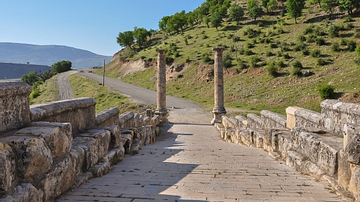
Image
Cendere Bridge
Cendere bridge; columns dedicated to Septimius Severus and Julia Domna; built around 200 CE
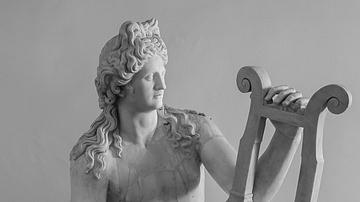
Image
Apollo Citharoedus
Apollo Citharoedus; 1st century CE; Head, hands, left leg and the instrument were restored in 17th century CE; Palazzo Altemps in Rome, Italy.
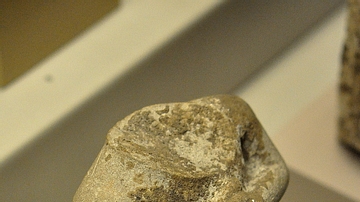
Image
Statue Dedicated to the Goddess Ninshubur
The cuneiform inscriptions on the back of this gypsum statue mention that this statue was dedicated by Enzi and his son Amar-kiku to the goddess Ninshubur at the city of Der. From southern Mesopotamia (modern-day Iraq). Early dynastic period...
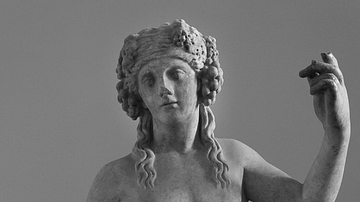
Image
Dionysos Statue, Palazzo Altemps
Remains of gold visible on the sculpture; 2nd century CE; Palazzo Altemps in Rome,Italy.
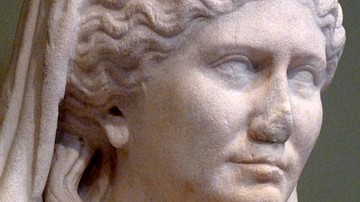
Image
Cybele
Cybele, the mother goddess, wearing a crown in the form of a towered wall, a symbol of her role as a protectress of cities, Roman sculpture, c. 50 CE.
Getty Museum.
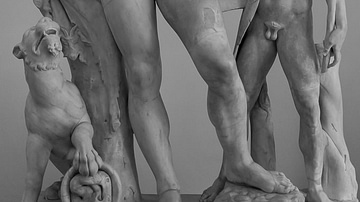
Image
Dionysos and Satyr
Dionysos and Satyr; A Roman copy of 4th century BCE Greek original; 2nd century CE; Palazzo Altemps in Rome, Italy
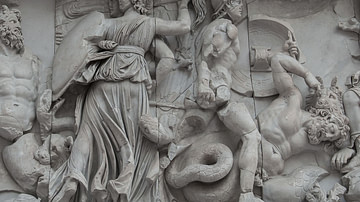
Image
Hecate Fighting the Giant, Pergamon Altar
On the left side the goddess Hecate is depicted while fighting the giant Clytius (she fights in three incarnations with a torch, a sword, and a lance); Detail from the Pergamon Altar's frieze (The frieze depicts Gigantomachy); built in 2nd...
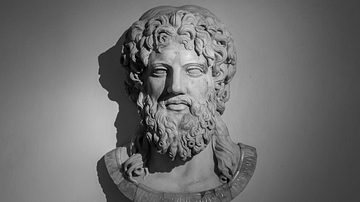
Image
Zeus Bust, Palazzo Altemps
A Roman copy of a Greek archetype from the 5th century BCE; Restored over time, but the beard and curls are original; 2nd century CE; Palazzo Altemps in Rome, Italy
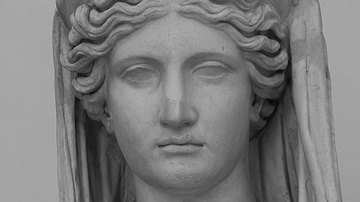
Image
Bust of Demeter
A Roman copy of Greek sculpture from the 4th or 5th century BCE; The tip of the nose is restored and the diadem had pearls which are now missing; 2nd century CE; Palazzo Altemps in Rome, Italy.
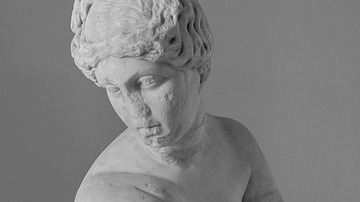
Image
Crouching Aphrodite, Palazzo Altemps
Roman copy of a Greek original by Doidalsas; 2nd century CE; Palazzo Altemps in Rome